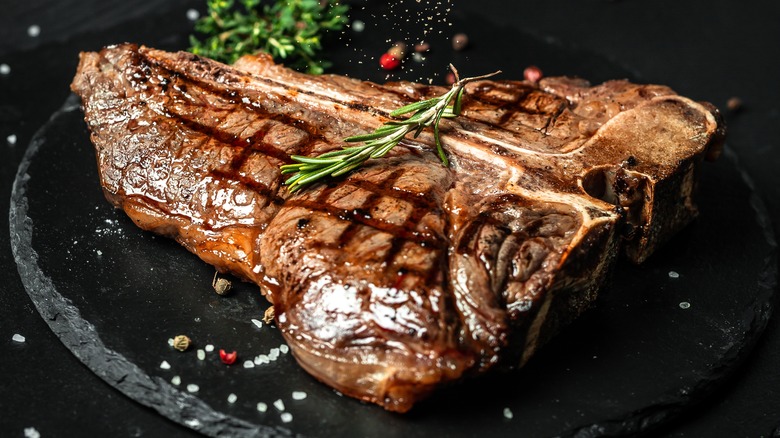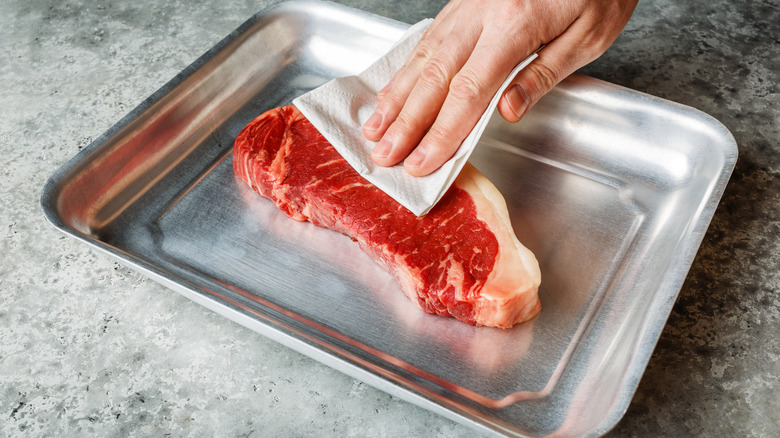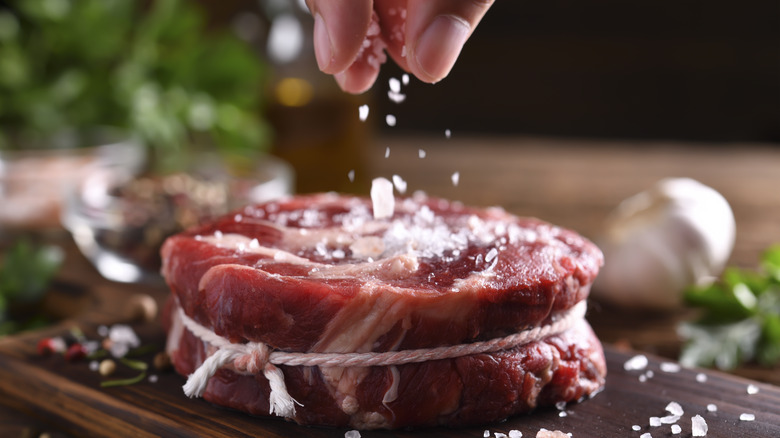Why You Should Pat Meat Dry Before Cooking It
You're standing in front of the meat counter at your local grocery store, debating between steak, chicken, pork, or even a hearty rack of lamb. Although cooking meat is easier than it seems, it can be a bit daunting envision a golden-brown ribeye when you're staring at a raw, marbled chunk of steak. Regardless, you take your pick of available cuts, then bring it home to prepare yourself (or your guests) a tasty dinner.
Perfectly cooked meat should not only taste great but also look delicious. The first step to impressing yourself and others is to properly season the meat. This could be anywhere from 30 minutes to a couple of days in advance, depending on the type.
But when it comes to the actual cooking process, you'll need to avoid searing meat with too much moisture on the outside. A simple fix? Pat the meat dry before adding it to the heat.
Pat your meat dry before cooking
When it comes to cooking meat, whether it's on a grill or in a cast-iron skillet, it's all about that golden-brown sear. The best way to get the perfect color on your meat is to make sure its surface is dry before it hits the pan.
When the surface of the meat contains excess moisture, that liquid almost immediately evaporates upon the meat meeting the heated surface. When that happens, it creates steam, which prevents the golden crust we know and love.
To remove that moisture, pat the outside of the meat dry with a paper towel. Don't press too hard; you don't want to remove any natural moisture from within the meat. Rather, press lightly with little force but just enough for that surface-level moisture to be absorbed. From there, if you're cooking or searing it on the stovetop, make sure to preheat the oil or butter you're cooking it in, so the meat's exterior can start to crisp up the moment it's put on the heat.
Make sure to season the meat, too
Searing the meat might be the best way to get a visually appealing dish. But when it comes to maximizing flavor, there's one other important method to getting that taste just right: seasoning with salt.
How much and when you season a piece of meat depends on the type of meat you're cooking. For steak, you'll want to season it as far in advance as possible. A thick ribeye can be seasoned up to several days in advance, according to Samin Nosrat's "Salt, Fat, Acid, Heat." For a pork chop, seasoning the night before is ideal if you buy it far enough in advance. For chicken, you can season it a bit closer to cooking time — about two hours prior, or as little as 30 minutes.
In all cases, though, it's always better to season than to not. Even if you only have 15 minutes before you cook the meat, you should get that seasoning on as soon as possible. One more tip: Use kosher or sea salt, rather than table salt; the iodine in table salt could give meat a metallic flavor.


